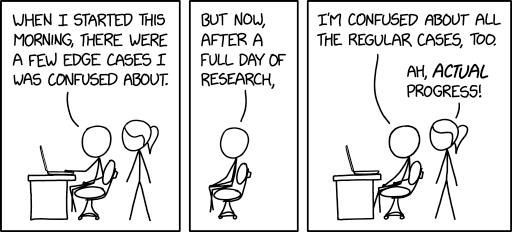Edit: Alright, it's been more than 48 hours! We got lots more feedback this time, and most of it has been in support of the idea! I'm going to give this a try, and see if it gets any traction. If not many people end up using it I can always just unpin and let the post fall down the sorting list.
@wjs018@beehaw.org made an interesting point about pinned comments being less visible to folks browsing from feed other than /c/science itself, but I'm hoping that having the pinned post might let some folks realize that asking questions is even allowed on this community in the first place! I'll make it clear that asking questions as a separate post is also allowed (at least for now, may change if the feed ends up being flooded by them but that's the opposite of the current situation so I'm not too worried).
Original text of this post below:
So it turns out if you set a language on your post, anyone who hasn't explicitly picked any languages in their profile can't see it. So I'm gonna repost this with no language selected and see if we get a little more feedback this time.
There were a couple of Q&A posts here ~~yesterday~~ the other day that got some pretty good engagement, and I was wondering if folks would be interested in a weekly/biweekly pinned Q&A post?
I don't think it makes sense at this point to do anything like reddit's /r/AskScience does in terms of organizing themed panels or vetting people's credentials, nor is that something that's really supported by lemmy as a platform at the moment. It seems, though, that we do have a fair number of users around who are working scientists and engineers in a pretty wide variety of fields.
So: if a pinned Q&A post existed, would you ask questions? Likewise, would you contribute answers? If you wouldn't use it, I'd love to know that too! Do you think it would be better to leave things as they are and just ask questions in post form? Let me know here in the comments, and also of course feel free to raise any additional thoughts or concerns you might have. If it seems like enough folks are interested I can set up a thread to try the idea out.

The strong law of small numbers strikes again!